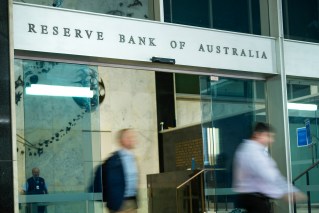Ask the Expert: Belated tax returns, reverse mortgages, super gender gap


Licensed financial adviser Craig Sankey answers your burning finance questions. Photo: TND
Question: I have not submitted a tax return for over 10 years.
I was a Commonwealth public servant, fully taxed and have minimal additional income (NRMA shares and savings interest).
I retired five years ago on CSS pension plus private super from termination payments. The latter is less than 25 per cent of my income. What is the best way to proceed?
Answer: Generally, you need to lodge an income tax return every year. Surprisingly, there are many people who do not get around to lodging their tax returns for various reasons like being overseas, ill or simply forgetting.
As you have stated, having outstanding tax reporting obligations can lead to stress or worry about the consequences.
Firstly, if you are owed a refund, or at least if you do not owe any tax, then generally there are no penalties.
As you have stated that you were ‘fully taxed’, this may well be the case.
On the other hand, if it turns out that you do have an outstanding tax liability, then a fine and interest penalties will apply.
These days the ATO already has data on nearly all taxpayers so I would strongly recommend you take the initiative and lodge all prior years’ tax returns as soon as you can.
It sounds like your tax situation is fairly straightforward so a licensed accountant should be able to assist you quickly and without the need to charge a high fee.
Question: Are reverse mortgages safe?
Answer: A reverse mortgage (also known as a home equity release loan) is where a home owner uses the equity in their home as security to borrow money.
That money is then generally used to provide additional ongoing income or can be paid as a lump sum.
Reverse mortgages may be suitable for asset-rich and cash-poor senior Australians, but there are a range of issues to consider before borrowing.
Features will vary between products – however, there are two key features common to most reverse mortgages you should consider:
‘No Negative Equity Guarantee’: This ensures the home owner (or their estate) can never owe more than the value of the home, no matter how long you stay in the home.
‘Protected Equity Option’: This enables the home owner to retain a portion of the home’s future value upon its sale.
This can be important if you are concerned about leaving an inheritance.
It ensures the family receives a predetermined amount of the equity (say 40 per cent), regardless of what happens to the balance of the loan or property prices in the future.
Other things to note:
- Interest rates are generally higher than standard home loan rates, plus the compounding of interest and product fees can rapidly increase the loan value and reduce your equity in your home. A loan provider must provide you with some modelling showing potential impacts
- The loan will have an impact on how much your estate is worth when you pass away
- Centrelink entitlements may be affected
- Each reverse mortgage product has its own unique features that would need to be considered.
Centrelink has its own version of a reverse mortgage called a ‘Pension Loan Scheme’ that may be worth considering as rates are generally very competitive and you are only dealing with the one government agency.
It is strongly recommended you seek legal advice prior to entering into any agreement in relation to a reverse mortgage. In fact, many lenders will only accept your application on the proviso you have done so.
Question: Women have been identified as a group being disadvantaged within superannuation.
Is there any hint of a government policy to permit women to contribute more than $25,000 per year other than through the averaging three-year system?
Answer: As you noted, women have lower superannuation balances on average than men.
This is mainly due to women taking time out of the workforce to raise children, and being paid less than their male peers.
The federal government will shortly be releasing the Retirement Income Review which may address this issue, as many of the submissions made to the review made reference to this fact.
A Victorian government submission argued companies should be allowed to make higher super contributions for female employees, while other submissions recommended ‘joint’ super accounts for couples.
Topping up your super before retirement is a popular strategy and you can do this with both pre- and post-tax contributions.
In your situation you make reference to the concessional (pre-tax) super contributions which normally consists of employer SG, salary sacrifice and personal tax-deductible contributions.
This is capped at $25,000 per financial year.
Under the ‘carry forward’ provisions, unused concessional contributions from previous years can be made on a rolling basis for five years.
This means if you don’t use the full amount of your concessional contribution cap ($25,000 in 2019-20 and 2020-21), you can carry forward the unused amount and take advantage of it up to five years later, so long as you have a total superannuation balance below $500,000.
You can also make non-concessional (after tax) contributions of $100,000 per financial year, or up to $300,000 in one year if using the ‘bring forward’ provisions where up to two years of your future non-concessional cap is used.
Craig Sankey is a licensed Financial Adviser and Head of Technical Services & Advice Enablement at Industry Fund Services.
Disclaimer: The responses provided are general in nature, and whilst they are prompted by the questions asked, they have been prepared without taking into consideration all your objectives, financial situation or needs.
Before relying on any of the information, please ensure that you consider the appropriateness of the information for your objectives, financial situation or needs. To the extent that it is permitted by law, no responsibility for errors or omissions is accepted by IFS and its representatives.








